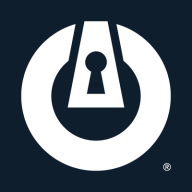

ThreatLocker Zero Trust Endpoint Protection Platform and FortiGate Next Generation Firewall are two leading products in the cybersecurity category. ThreatLocker is favored for its precise application management capabilities, while FortiGate stands out in network security features.
Features: ThreatLocker offers selective elevation, application control, and ring-fencing. These features aid in blocking unauthorized software and streamline application requests. FortiGate provides strong integration capabilities, along with a wide range of security features, such as threat intelligence and VPN functionality, ensuring comprehensive network protection.
Room for Improvement: ThreatLocker could enhance its user interface and simplify workflow to make it more intuitive for users. There is also room for better customization in reporting and integration with other systems. FortiGate's integration with Fortinet tools and support for SD-WAN features could see improvement. The pricing model and user-friendliness in feature implementation also need addressing.
Ease of Deployment and Customer Service: ThreatLocker offers flexible deployments in both cloud and on-premises environments and is recognized for exceptional customer support. The Cyber Heroes team is praised for quick and knowledgeable responses. FortiGate is usually deployed on-premises but provides reliable support. However, it lacks the immediacy and expertise that ThreatLocker supports.
Pricing and ROI: ThreatLocker is competitively priced with a clear ROI, evident through reduced management overhead and enhanced security, offering scalability and great value for its users. FortiGate's pricing ranges from moderate to high, which may not be as cost-effective for smaller companies, though it provides significant value for comprehensive network security.
It has notably improved our efficiency and visibility.
Using FortiGate has enabled us to increase security, control user access, manage bandwidth, and enhance the ability to provide a variety of operations solutions to clients.
It's easy to configure a new connection, and it works in a few minutes if everything works fine.
If something were to happen without ThreatLocker, the cost would be huge, and thus, having it is definitely worth it.
The main return on investment is peace of mind, knowing that with ThreatLocker on any endpoint, it will almost always block all malicious code or exploits, even zero-day exploits.
It keeps malware, Trojans, and ransomware at bay.
I must study the best version to install to avoid previously found bugs.
I would rate Fortinet's support a 10 because they are excellent and very available whenever we needed their help.
In some cases, you need to come prepared because the people there work by the book and ask for particular things. If you don't have them, you cannot proceed, but if you know what they need, after some time, it's pretty easy to get support or whatever you need.
They have been very responsive, helpful, and knowledgeable.
I would rate their customer support a ten out of ten.
Their support is world-class.
The scalability of the FortiGate Next Generation Firewall (NGFW) is quite good; it is easy to make it scalable.
What it allows us in terms of connections to other companies is a straightforward solution that you don't have to use something else.
I started off with just the servers, and within a month and a half, I set up the entire company with ThreatLocker.
It seems to primarily operate on the endpoints rather than at a central location pushing out policies.
I would rate it a ten out of ten for scalability.
Regarding next-generation firewalls, I would give the FortiGate Next Generation Firewall (NGFW) a rating of 10 for stability.
In some cases, you need to restart it, but mostly, it's working flawlessly, especially if you have an HA environment, high availability.
In my experience, there are usually no significant stability issues with FortiGate Next Generation Firewall (NGFW).
For five years, we have not had a problem.
Once deployed, it downloads the policies locally, so even if the computer doesn't have internet, it doesn't matter.
It has been very stable, reliable, and accessible.
Improvements could be made when companies expand and need better equipment and more licenses.
Configuring these services is quite complex and not very user-friendly, requiring technical steps that are difficult for normal users to understand.
When a site is blocked, it is necessary for me to consult the logs to understand what the Next Generation Firewall policy has blocked.
Controlling the cloud environment, not just endpoints, is crucial.
This is problematic when immediate attention is needed.
Comprehensive 24-hour log monitoring is a valuable enhancement for both business and enterprise-level users.
It offers cost savings as it is generally cheaper than the competition.
The pricing of FortiGate Next Generation Firewall is competitive.
Fortinet tools like FortiGate are costly for us as a higher education institute in India.
After conversations with other partners, it became clear we underpriced it initially, which caused most of our issues.
We are moving towards the Unified solution, where they basically bundle everything together, providing us better stability with the ability to bring in new product offerings without having to go back to the customer and say, 'This is going to cost you.'
I had a really good deal at the time, and it continues to be cost-effective.
The firewall and VPN features are the most valuable in protecting our customers' networks.
The most valuable features of the FortiGate firewall include SSL inspection, VPN functionality, and threat intelligence features for preventing threats.
FortiGate Next Generation Firewall (NGFW) has improved our efficiency in setting up security and provided us with more visibility over some issues and incidents we previously faced.
ThreatLocker Zero Trust Endpoint Protection Platform's ability to block access to unauthorized applications has been excellent.
It protects our customers.
The major benefit is fewer breaches overall, as nothing can be run without prior approval. This helps my company protect its data and secure itself effectively.


The FortiGate Next Generation Firewall (NGFW) from Fortinet is a comprehensive cybersecurity solution designed to cater to a wide array of organizational needs. It integrates seamlessly into the Fortinet Security Fabric, offering robust protection against various internal and external threats, including attacks, malware, and vulnerabilities. The NGFW is known for its advanced features such as SSL inspection, application control, visibility enhancements, and an effective intrusion prevention system (IPS). This IPS plays a critical role in identifying and blocking malicious traffic by monitoring and inspecting incoming data.
FortiGate NGFW can be deployed in diverse environments, including on-premises, in the cloud, or hybrid setups. The firewall is equipped with next-generation antivirus capabilities, IPS, web filtering, sandboxing, and intelligent security automation features like threat intelligence integration and automated incident response. Its reporting and analytics tools are comprehensive, aiding in enhancing an organization's security posture.
A notable aspect of the FortiGate NGFW is its diverse and highly rated features, including a powerful VPN, a user-friendly Firewall Management Console, policy-based controls, and advanced reporting and logging capabilities. The system also supports Identification Technologies, Visualization Tools, Content Inspection, and seamless integration with Active Directory and LDAP directories. Its High Availability and the flexibility to deploy in various configurations, such as on-premises or as a Virtual Machine, make it a versatile choice for different business needs.
The FortiGate NGFW also excels in providing secure connectivity. It supports various VPN protocols, offers SD-WAN for intelligent traffic routing, and integrates SASE for unified security and networking solutions. These features contribute to improved security, reduced operational costs, and increased agility for organizations.
When it comes to user experiences and satisfaction, FortiGate NGFW has garnered positive feedback, with an average rating of about 4.26 out of 5 on PeerSpot Reviews. Users from diverse roles, including core network teams, technical officers, and cybersecurity engineers, and from various sectors such as tech services, education, and finance, have found the solution effective. This indicates its versatility and suitability across different company sizes and types.
However, there are areas for improvement. Enhancing the details in Logging Services and making 10 Gigabit Interfaces available for lower models are some suggested enhancements. Simplifying the installation of FortiAP services is also noted as a potential area for improvement.
ThreatLocker Zero Trust Endpoint Protection Platform offers robust endpoint security through application control and allowlisting, safeguarding servers and workstations from unauthorized software execution.
ThreatLocker Zero Trust Endpoint Protection Platform provides extensive application control with features like ring-fencing and selective elevation, ensuring meticulous execution management. Offering learning mode and extensive support, it integrates threat detection and activity monitoring to enhance compliance, reduce costs, and bolster cybersecurity through alerts and approvals. Despite its strengths, there are areas for improvement in training flexibility, policy updates, and interface enhancements, along with challenges in handling non-digitally signed software. Deployed across environments, it works well with existing cybersecurity instruments for real-time threat prevention.
What are the top features of ThreatLocker?ThreatLocker Zero Trust Endpoint Protection Platform is widely implemented to safeguard IT infrastructures against unauthorized access and application use. In sectors where data security is paramount, this platform enables users to prevent unauthorized software installations and control device applications, ensuring real-time threat prevention and compliance with industry regulations.
We monitor all ZTNA reviews to prevent fraudulent reviews and keep review quality high. We do not post reviews by company employees or direct competitors. We validate each review for authenticity via cross-reference with LinkedIn, and personal follow-up with the reviewer when necessary.